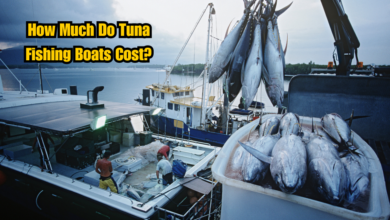The Complete Guide to Understanding Escort Fish: Everything You Need to Know

Escort fish are one of the most fascinating species in marine biology due to their symbiotic relationship with larger predators like sharks and rays. They play a crucial role in marine ecosystems, ensuring a delicate balance is maintained. If you’re wondering what escort fish are, how they live, and why they are important, this comprehensive guide will provide you with all the answers.
What Are Escort Fish?
Escort fish are small to medium-sized fish species, often from the Remora family, that form mutualistic relationships with larger marine animals. This means that both the escort fish and the host benefit from the relationship. The escort fish attach themselves to sharks, rays, or other large fish using a specially adapted sucker on their heads.
In return, the escort fish help clean parasites off their hosts, consume leftover food, and offer protection from predators. These relationships often resemble hitchhiking but serve a much larger ecological purpose.
Types of Escort Fish
There are several species of fish that can be classified as “escort fish.” Some of the most well-known include:
1. Remoras (Suckerfish)
Remoras are the most common escort fish, typically recognized for their flattened heads with an oval sucker disc. This disc is an evolutionary adaptation that allows them to cling onto larger fish. There are around eight species of Remoras, with some of the most famous being the Shark Sucker and the Common Remora. They often attach themselves to sharks, rays, and sea turtles, feeding on parasites and scraps from their host’s meals.
2. Pilot Fish
Pilot fish, typically striped fish, form a different kind of association with their hosts, particularly sharks. Unlike Remoras, they do not attach themselves but swim alongside larger predators. They are known for guiding their hosts toward food sources, hence the name “pilot.” These fish also feed on parasites and leftover prey, creating a mutually beneficial relationship.
3. Cleaner Fish
Cleaner fish, such as the Blue-Streak Cleaner Wrasse, help maintain the health of marine ecosystems by removing parasites from other fish. Though not typically attached to their hosts, they provide similar services, helping their hosts by grooming and cleaning.
The Symbiotic Relationship: How Escort Fish and Hosts Benefit
Mutualistic Benefits
In any ecosystem, symbiotic relationships are key to survival. Escort fish offer numerous advantages to their hosts while simultaneously reaping benefits. This mutualistic interaction is essential for the ecological equilibrium of marine environments.
Benefits to Escort Fish
- Protection from Predators: By staying close to large predators, escort fish avoid being eaten by larger species. Their proximity to dangerous hosts often deters other predators from attacking them.
- Food Availability: Escort fish enjoy a consistent food source. Whether it’s consuming scraps left behind by their host or feeding on parasites, they rarely struggle to find nourishment.
- Easier Travel: Escort fish benefit from traveling with larger animals, particularly across long distances. They save energy by attaching to or swimming alongside these powerful creatures.
Benefits to the Host
- Parasite Removal: Escort fish clean parasites and dead tissue off their hosts, improving their overall health. This cleaning service ensures the host remains in peak physical condition.
- Reduced Predation: Larger predators benefit from the presence of escort fish by having extra eyes and ears to detect danger. Some escort fish alert their host to nearby threats, enhancing their chances of survival.
- Efficient Hunting: Pilot fish, in particular, help guide their hosts toward rich feeding grounds. This guidance can significantly enhance the hunting success of the host predator.
The Role of Escort Fish in the Ecosystem
Escort fish do more than merely attach themselves to larger creatures. They play a vital role in maintaining the health of marine ecosystems. By removing parasites from their hosts and cleaning up excess food, they help maintain the balance of these underwater environments.
1. Maintaining Biodiversity
Escort fish contribute to the biodiversity of marine environments by ensuring that larger predators remain healthy and free of disease. A healthy predator is more likely to control the population of other species, thereby keeping the entire ecosystem in balance.
2. Supporting Marine Health
Through their cleaning behaviors, escort fish reduce the number of harmful parasites and bacteria in the ocean. This contributes to the overall health of the ocean, making them an essential part of marine life.
3. Symbiosis and Marine Interactions
Escort fish are an excellent example of symbiotic relationships in nature, where two species live together for mutual benefit. This cooperation between species helps support both individual survival and the broader ecosystem.
Interesting Facts About Escort Fish
Escort fish have several unique characteristics and behaviors that make them truly intriguing. Here are some interesting facts:
- Adaptable Suction Cups: Remoras have developed a specialized suction disc on their heads that can generate significant attachment force. This adaptation allows them to hold on to even fast-moving predators like sharks.
- Lifespan: Escort fish, depending on the species, can live up to 10 years or more, thriving in their symbiotic relationship throughout their lives.
- Host Preference: Remoras and other escort fish often have host preferences, meaning they will choose certain species over others. For instance, some Remoras prefer attaching to sharks, while others are more commonly found on rays or sea turtles.
The Evolutionary Adaptations of Escort Fish
Escort fish have evolved several unique adaptations that allow them to thrive in their environments. These adaptations not only ensure their survival but also enable them to develop long-term symbiotic relationships with their hosts.
Suction Disc (Remoras)
The suction disc on the head of the Remora is a standout evolutionary feature. This disc, made of soft tissues and bony plates, allows the fish to attach firmly to large animals, even in fast currents. The suction created by this disc is so strong that removing a Remora by hand is difficult.
Behavioral Adaptations
Escort fish have evolved specific behaviors that align with the needs of their hosts. For example, pilot fish actively guide their host predators to food sources. Cleaner fish, on the other hand, have established cleaning stations where other fish come to be groomed, a behavior that benefits both parties.
Survival Through Symbiosis
Symbiotic relationships are an evolutionary success for escort fish. By forming close associations with larger predators, they significantly increase their survival rates and access to food, a distinct advantage in the competitive marine environment.
The Importance of Escort Fish in Marine Tourism
Escort fish have become a popular subject of marine tourism, particularly for divers and snorkelers interested in observing marine symbiosis. Tourists often encounter these fish while exploring coral reefs or other marine environments, making them a common sight in underwater photography and videography.
Promoting Conservation
Marine tourism that highlights species like escort fish plays an important role in promoting marine conservation efforts. By showcasing the intricate relationships between species, these experiences raise awareness about the importance of protecting marine ecosystems.
Sustainable Tourism Practices
To ensure that escort fish and their host species are protected, it’s crucial that marine tourism adheres to sustainable practices. This includes limiting the number of tourists in sensitive areas and ensuring that boats, divers, and snorkelers do not disturb marine life.
The Future of Escort Fish in Marine Ecosystems
Escort fish, like all marine species, face threats from human activity. Overfishing, habitat destruction, and climate change are just a few factors that impact their survival.
Climate Change
Rising ocean temperatures and changing currents may disrupt the delicate symbiotic relationships between escort fish and their hosts. As the oceans warm, larger fish might migrate to cooler waters, potentially leaving escort fish behind or forcing them to adapt to new environments.
Conservation Efforts
Conservation efforts aimed at protecting large marine predators, such as sharks, indirectly benefit escort fish. By ensuring the survival of their hosts, these efforts support the broader marine ecosystem. Organizations dedicated to marine conservation play a key role in protecting the natural habitats where escort fish and their hosts thrive.
Conclusion
Escort fish are remarkable examples of symbiotic relationships in the animal kingdom. Their mutualistic bonds with larger predators like sharks and rays showcase the complex interdependence present in marine ecosystems. Through their parasitic removal services, efficient hitchhiking methods, and evolutionary adaptations, escort fish contribute significantly to marine biodiversity.
Protecting escort fish and their environments is crucial for maintaining the delicate balance of life in the oceans. By promoting sustainable tourism and supporting conservation efforts, we can ensure that these fascinating fish continue to thrive in their natural habitats.
For more insights on marine conservation efforts and the role of species like escort fish, you can explore resources like the Marine Conservation Institute or dive deeper into symbiotic relationships through the Smithsonian Ocean Portal.
By thoroughly understanding the importance of escort fish and their symbiotic relationships, we can appreciate the intricate web of life that sustains marine ecosystems. Whether you’re a diver, marine enthusiast, or simply someone intrigued by the ocean, escort fish remind us of the delicate balance that exists beneath the waves.




